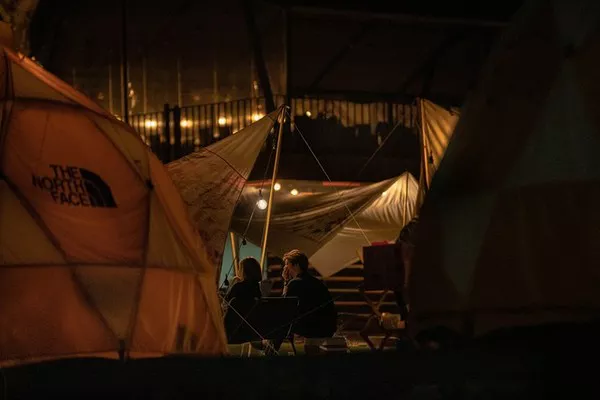The holiday season, often depicted as a time of joy and togetherness, can present unique challenges for those with ADHD or other neurodivergent conditions. What others see as festive cheer can quickly turn into sensory overload, social anxiety, and emotional exhaustion. However, with thoughtful preparation and tailored strategies, it is possible to navigate the season with greater ease and calm.
The Hidden Struggles of Holiday Socializing
For many, the holidays are synonymous with family gatherings, noisy parties, and endless social obligations. While these events may bring joy to some, they can feel overwhelming for those with ADHD. The constant barrage of stimuli — from loud conversations to crowded rooms — can drain mental energy, leaving little room for relaxation. Add the stress of “forced small talk” and the pressure to maintain a cheerful demeanor, and it’s easy to see why socializing during this time can be a struggle.
The Paradox of Connection
The desire for connection is universal, yet for neurodivergent individuals, the way we engage with others is often more complex. Our brains are wired to pick up on every nuance of social interactions, leading to a heightened sense of awareness that can feel exhausting in busy social settings. Whether it’s sensing emotional shifts or navigating unspoken social cues, our sensitivity to our environment can be a blessing and a curse.
The “fight-or-flight” response, triggered by anxiety, can also lead to unhealthy coping mechanisms. Overindulgence in food, alcohol, or mindless scrolling through social media often becomes an attempt to escape the overwhelming sensation of being “on” all the time.
Practical Strategies for a Calmer Holiday
To combat the overwhelm, several strategies can be incorporated into your holiday routine, helping you maintain peace and clarity even amidst the chaos.
1. Let It Go: Detach from Drama
The instinct to fix every problem or control every situation is natural, but it often leads to unnecessary stress. Mel Robbins’ “Let Them Be” theory offers a powerful tool — the practice of mentally detaching from others’ drama. For example, if a relative starts discussing politics at the dinner table, instead of getting caught in a debate, you can simply remind yourself, “Let him have his opinion.” This shift in perspective allows you to disengage from emotionally draining situations, conserving energy for more meaningful moments.
2. Rewrite Your Script: Choose Calm
Instead of mindlessly repeating “I choose calm,” make this affirmation an active practice. Pause, breathe deeply, and visualize a peaceful scene. Whether it’s stepping outside for fresh air or taking a quick bathroom break to reset, these moments of solitude can help recharge your mental batteries and keep anxiety at bay. Remember, you don’t have to engage in every conversation or social exchange. Sometimes, it’s about observing quietly and finding calm in the details — a picture on the wall, the decorations, or even the laughter in the background.
3. Micro-Boundaries: Protect Your Energy
Setting micro-boundaries is essential for managing social fatigue. Excusing yourself for a few minutes to gather your thoughts or stepping away from a conversation can help regulate your nervous system. A quick walk outside or a quiet room can provide the necessary space to recharge, ensuring you can return to the gathering with a renewed sense of composure.
4. Find Your Tribe: Seek Supportive Connections
Not all social interactions will be easy, but finding those who understand you can make a world of difference. Seek out friends or family members who respect your boundaries and create a safe, non-judgmental space for you. These connections can buffer against overwhelm, helping you feel grounded and supported throughout the festivities.
5. Gratitude Anchor: Focus on the Positive
Shifting your focus from stress to gratitude can significantly alter your holiday experience. Take time to savor the small moments — a heartfelt hug, a delicious meal, or a meaningful conversation. These anchors can help keep you grounded in the present, preventing your mind from spiraling into anxiety.
6. Pre-Game for Success: Visualize Your Experience
Preparation is key, especially for introverts or those who find social situations draining. Just as some Indigenous traditions emphasize mental preparation before entering a space, you can mentally rehearse the holiday gathering. Visualize yourself feeling calm, confident, and connected. This practice can help you approach the event with intention, reducing feelings of overwhelm and increasing your ability to stay present.
Embracing Your Unique Needs
Ultimately, the key to navigating the holidays with ADHD or any neurodivergent condition is self-compassion. Recognize that your experiences are valid, and make space for your unique needs. By setting boundaries, seeking supportive environments, and practicing mindfulness, you can transform the holiday season into an opportunity for rest, connection, and growth.
Let this season be a reminder to embrace your neurodiversity, honor your limits, and celebrate the moments that bring you joy. May these strategies help you navigate the holidays with greater ease, so you can enter the new year feeling recharged and centered.
Related topics:
Holiday Cheers and Reflections from McPhillips MLA JD Devgan
The Power of Holiday Traditions: Celebrating Legacy and Connection
Why Some Are Choosing to Spend the Holidays Away from Family

